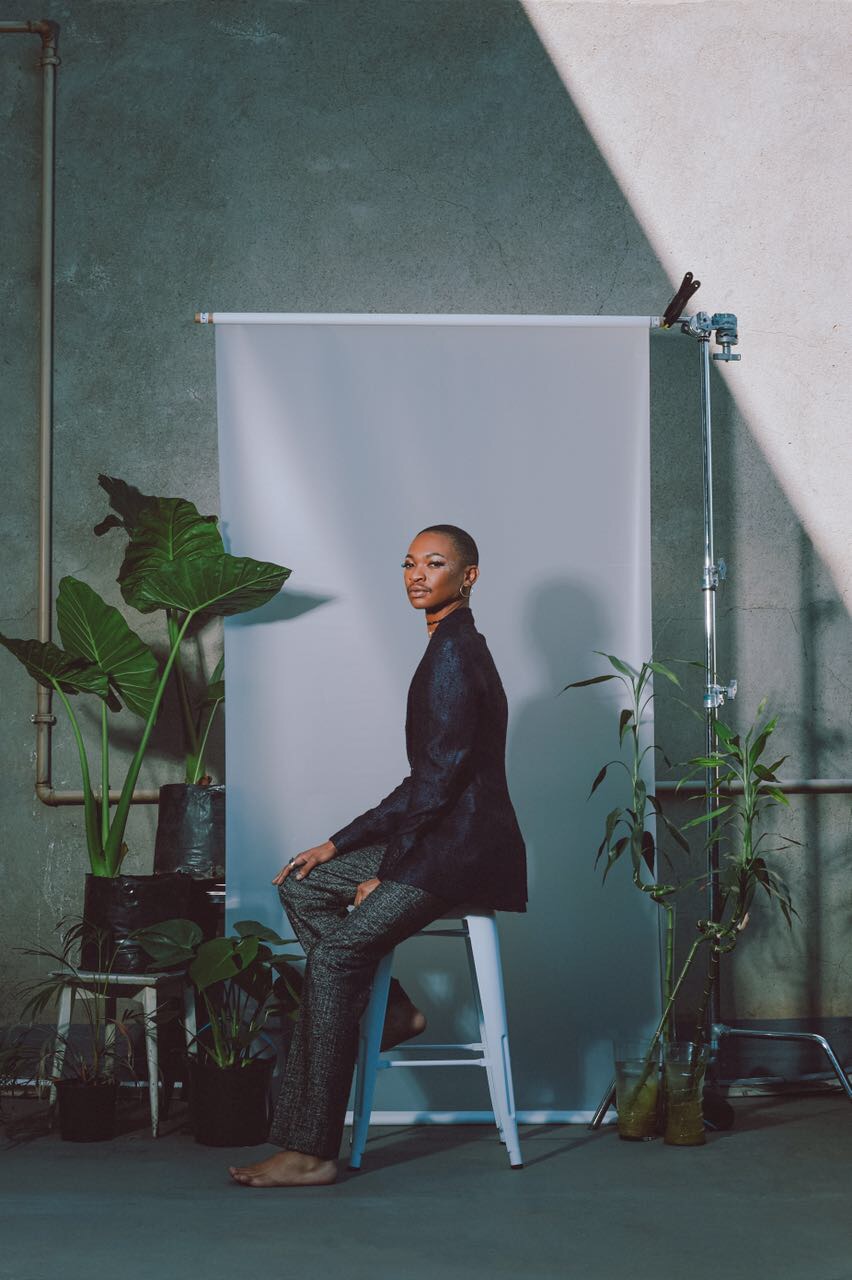Joburg-based M(x) Blouse might rap, but they don’t consider themselves a hip-hop artist. Born at the end of 2016 as a creative outlet for KZN-born Sandiso Ngubane, M(x) Blouse’s first release was “WTF(SQUARED)” in collaboration with Joni Blud. The release made an impact and led to a performance at Braam’s Pussy Party and which was followed in May 2017 by the release of their debut EP ‘Believe the Bloom’. Produced with a heavy boom-bap influence and a lot of mistakes along the way thanks to naiveté, the EP nevertheless was a valuable learning for M(x) Blouse. “I think it’s true what they say, if you wanna do something, just jump in and hope to swim. Because after that I started seeing more interest from other people saying let’s work.”
Fast-forward a year and the latest single from M(x) Blouse has sonically moved away from boom-bap, exploring areas such as kwaito and gqom. Produced by Thor Rixon, Stiff Pap’s Jakinda and Albany Lore, the track has helped M(x) Blouse push themselves as an artist. “It’s been amazing for me to just take a cue from them and how they do things and incorporating my rap into that. It’s opened up a huge scope for what I can do as an artist rather than trying to stick strictly to rapping in a hip-hop sense. So the growth has been crazy.” Another major growth-point for M(x) Blouse has been the switch to vernacular. “It just feels so comfortable, feels authentic, but I must add that I don’t necessarily feel like people rapping in English are not authentic. It would be a ridiculous notion to say that considering how much English is a part of our lives in South Africa. But for me specifically, writing in vernacular and mixing it with English just feels natural to me because that’s just how I speak.”
The single, “Is’phukphuku”, Zulu for idiot, speaks of freedom and those that encroach on it, the idiot being those who restrict the freedoms of others trying to have a good time. “The beat to me just communicated a sense of freedom and I wasn’t necessarily thinking this is a song about freedom but that’s eventually what it came to be. In the second verse I talk about this dude who approaches a woman. She’s trying to have fun, he offers her a drink and she’s like ‘nah, I’m cool bra, but thanks’, but he takes that the wrong way and starts calling her a bitch. That to me is someone who is making a space unsafe for someone. That sort of became what the track is about, but it really didn’t start off that way, it just clicked in the end.”
The video that accompanies the single is a visual feast featuring M(x) Blouse in South African fashion from the likes of ALC Man, Nicholas Coutts, with jewellery by Stefany Roup and Lorne, while dancers and supporting cast can be seen rocking Nicola W35T, and Art Club & Friends, with headgear by Crystal Birch. “I identify as non-binary. So it was important for me to express that stylistically, so the styling very much communicates that I’m not bound by gender in terms of what I wear. When you dress how you feel it doesn’t matter how you express yourself in terms of fashion. People always raise an eyebrow. So I really wanted a video that expressed that kind of quirk, if I can call it that, and being in a space as someone who is different you always seem like a fish out of water. I wanted to find a space where me and the people that I’m with would just look like a bunch of weirdos in the space, so we ended up going to a fish and chip shop!”
An EP or album isn’t on the cards for the next year at least, but M(x) Bloue will be releasing music this year. “I do have one or two more singles that I want to put out before the end of the year, but there’s also the Thor Rixon collaboration which is a house track, I’m very excited about it.” They are also looking to perform more in 2018. “What I’ve been trying to do is, at least here in Joburg, gather like-minded artists and do our own shows. So I’m hoping that’s going to pan out real soon.”
Having found a way to touch on social issues much like their hip-hop idols such as Nas and Lauryn Hill, without boxing themselves within hip-hop, M(x) Blouse is able to push themselves creatively. “I don’t even know what genre to say I am doing at the moment, but I’m happy to be exploring the limits of what I have to offer.”
Credits:
Photography – Aart Verrips
Styling – Bee Diamondhead











